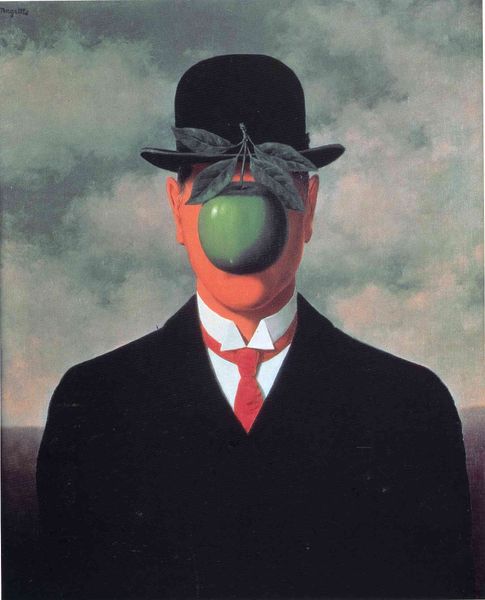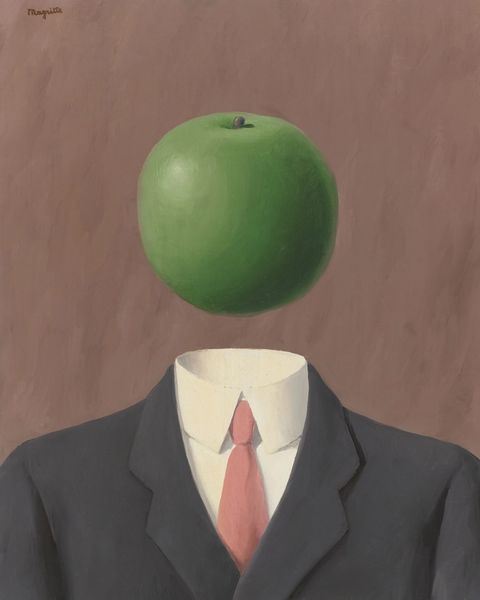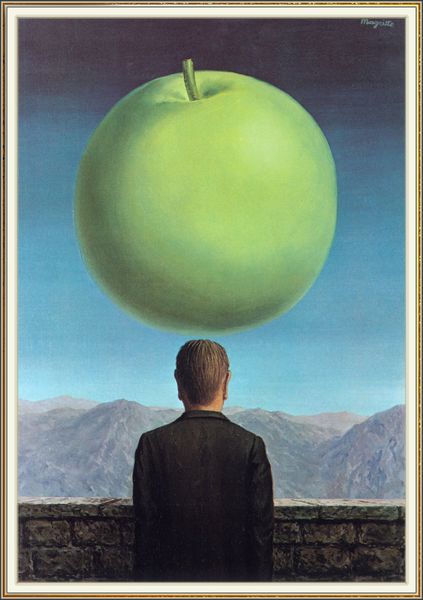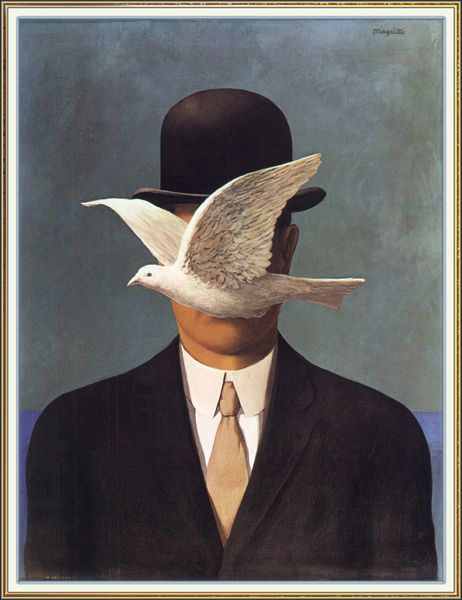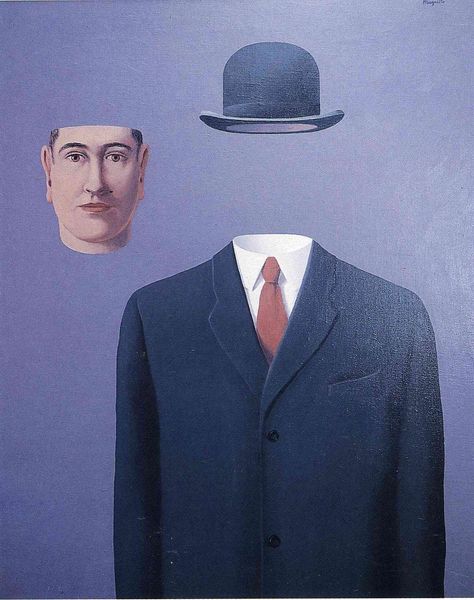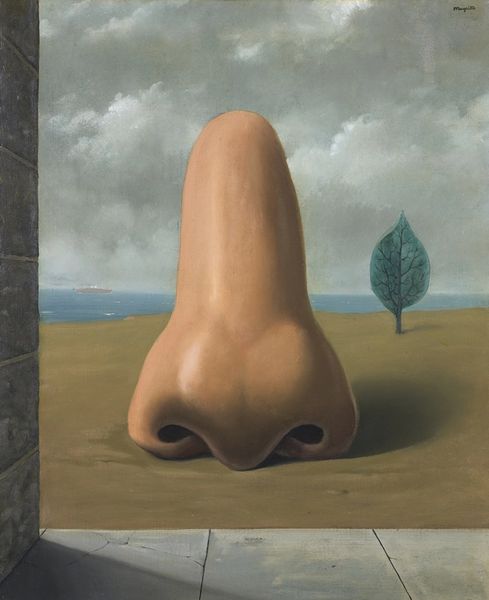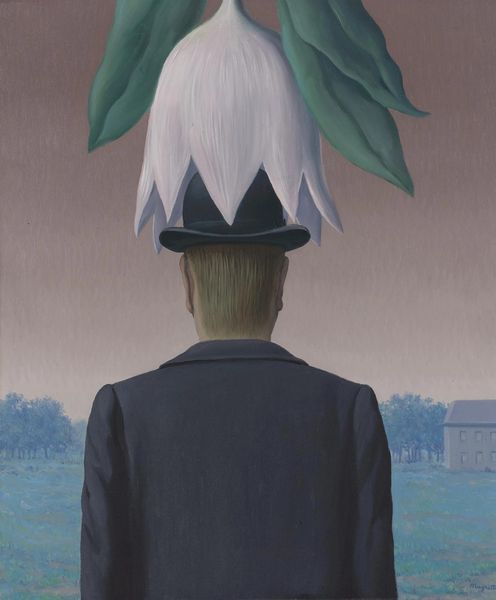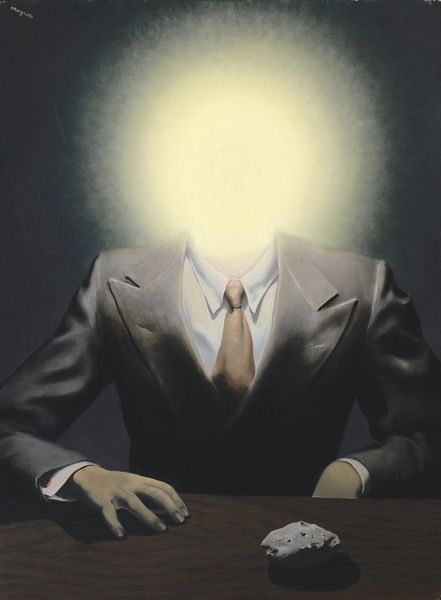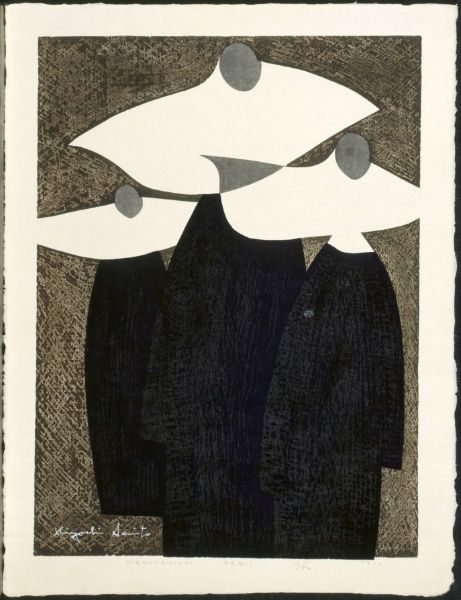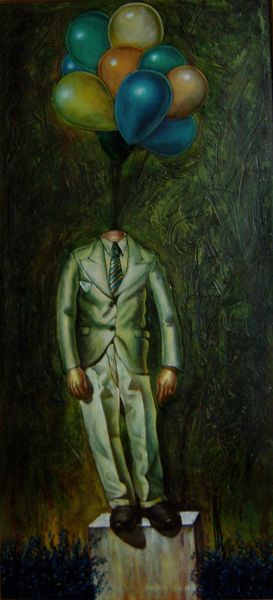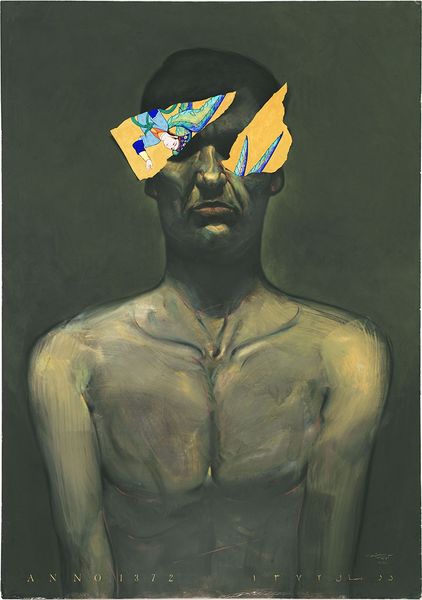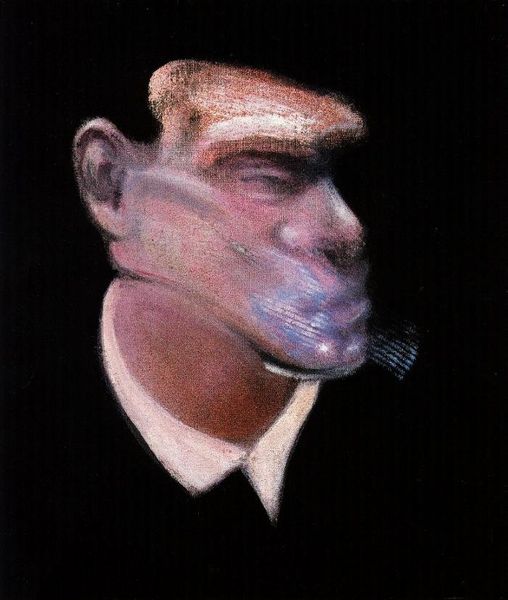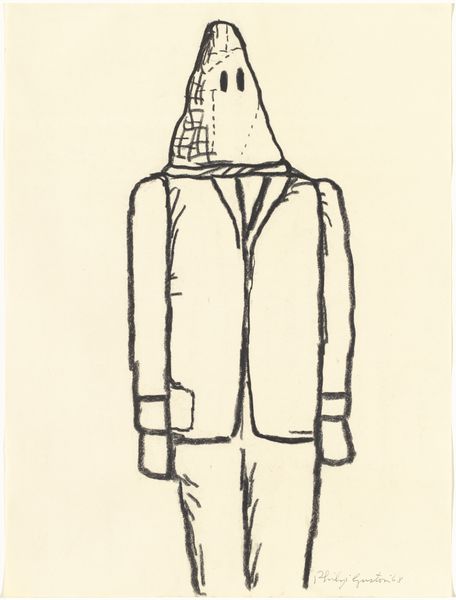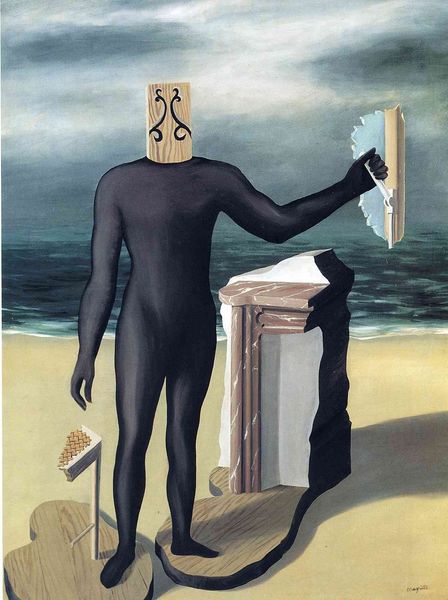
painting, oil-paint
#
painting
#
oil-paint
#
fantasy-art
#
cityscape
#
surrealism
#
modernism
Dimensions: 116 x 89 cm
Copyright: Rene Magritte,Fair Use
What's hidden beneath the things we can see? ‘It’s something that happens constantly. Everything we see hides another thing.’ These were the words of the Belgian surrealist painter René Magritte (1898-1967) in 1965, when asked about the deeper meaning of this painting. Painted in oil on canvas in 1964, ‘The Son of Man’ was first conceived as a self-portrait. ️ Almost every detail of ’The Son of Man’ is very… well, ordinary. Grey suit, grey wall, grey clouds in a grey sky. It’s all common imagery that we’re accustomed to seeing in an everyday context. One thing, however, seems to interrupt the normalcy of the scene. A large green apple hovers in mid-air, completely obscuring Magritte’s entire face! Magritte included the green apple as a bizarre and unexpected visual symbol. In Western art, apples are often associated with knowledge and temptations – think about the Biblical story of the Garden of Eden! The spherical fruit blocks his identity, suggesting hidden secrets and lending the painting a sense of enigma. The artist’s choice to depict himself with an obscured identity was purposeful. With his simple and average outfit, he becomes a universal figure. This could be a portrait of your friend, neighbour, father… anyone you encounter in day-to-day life. Magritte challenges us to question the parts of our identity that we might be hiding! 🫣
